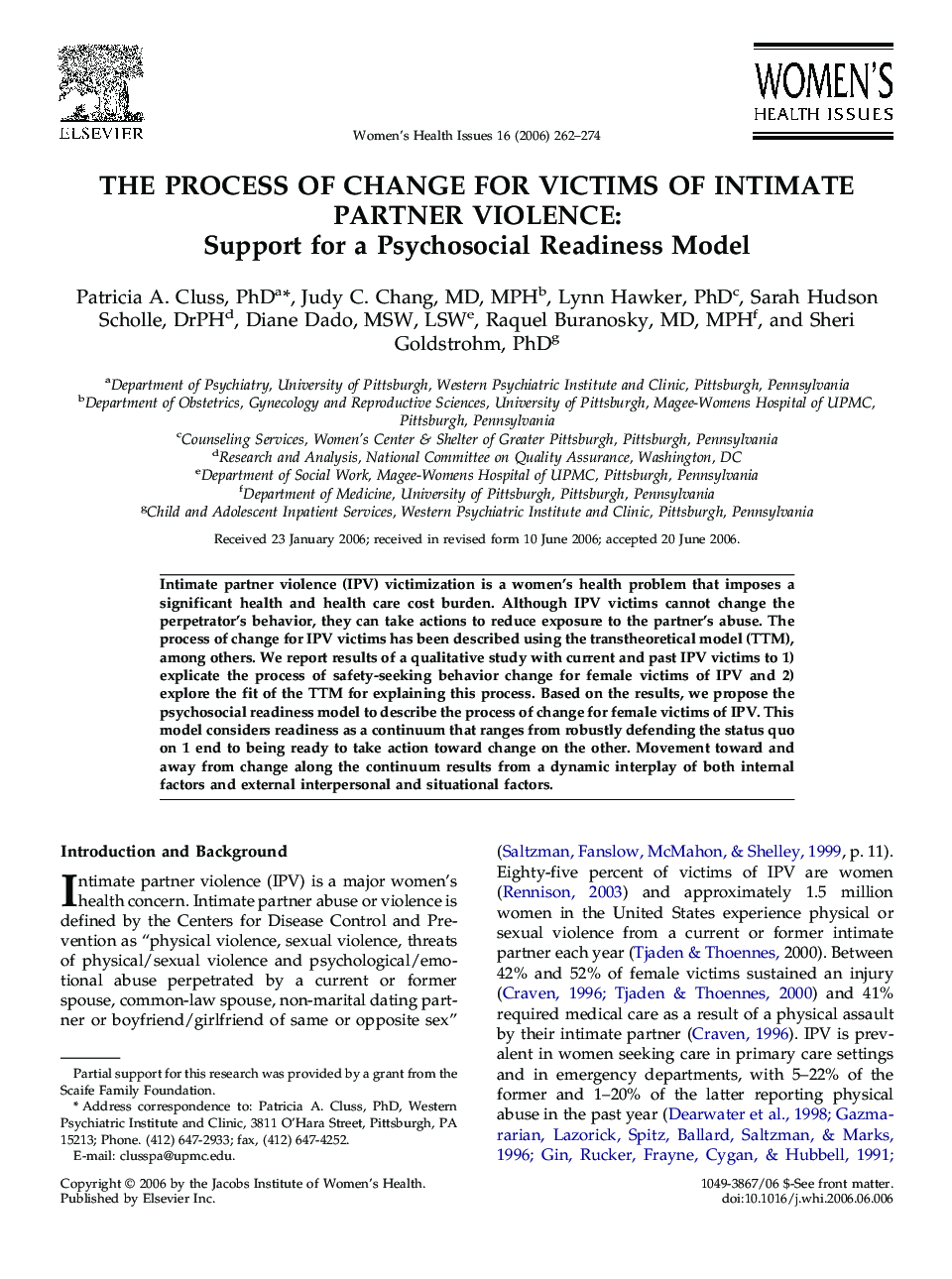| Article ID | Journal | Published Year | Pages | File Type |
|---|---|---|---|---|
| 1093847 | Women's Health Issues | 2006 | 13 Pages |
Intimate partner violence (IPV) victimization is a women’s health problem that imposes a significant health and health care cost burden. Although IPV victims cannot change the perpetrator’s behavior, they can take actions to reduce exposure to the partner’s abuse. The process of change for IPV victims has been described using the transtheoretical model (TTM), among others. We report results of a qualitative study with current and past IPV victims to 1) explicate the process of safety-seeking behavior change for female victims of IPV and 2) explore the fit of the TTM for explaining this process. Based on the results, we propose the psychosocial readiness model to describe the process of change for female victims of IPV. This model considers readiness as a continuum that ranges from robustly defending the status quo on 1 end to being ready to take action toward change on the other. Movement toward and away from change along the continuum results from a dynamic interplay of both internal factors and external interpersonal and situational factors.
